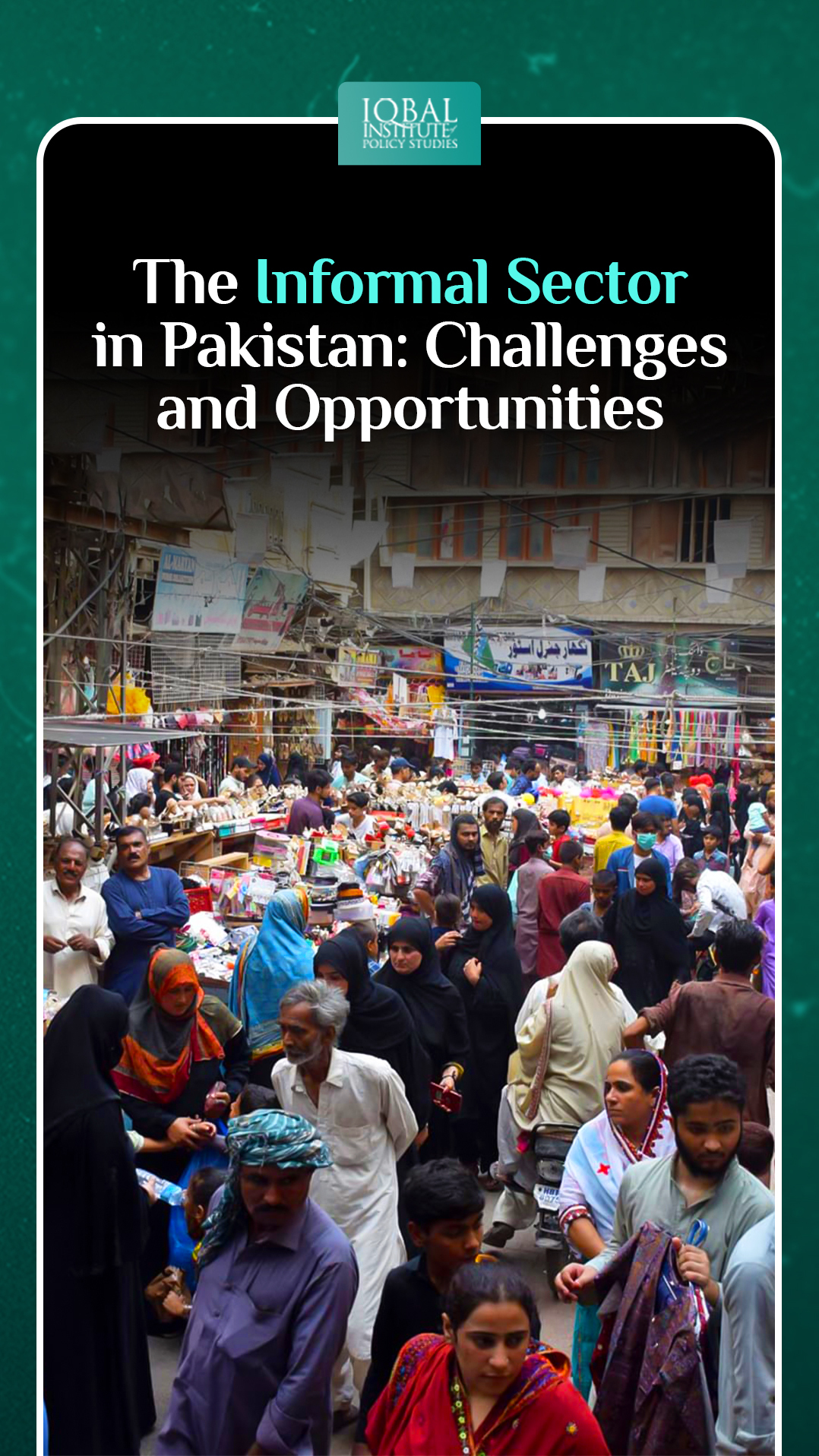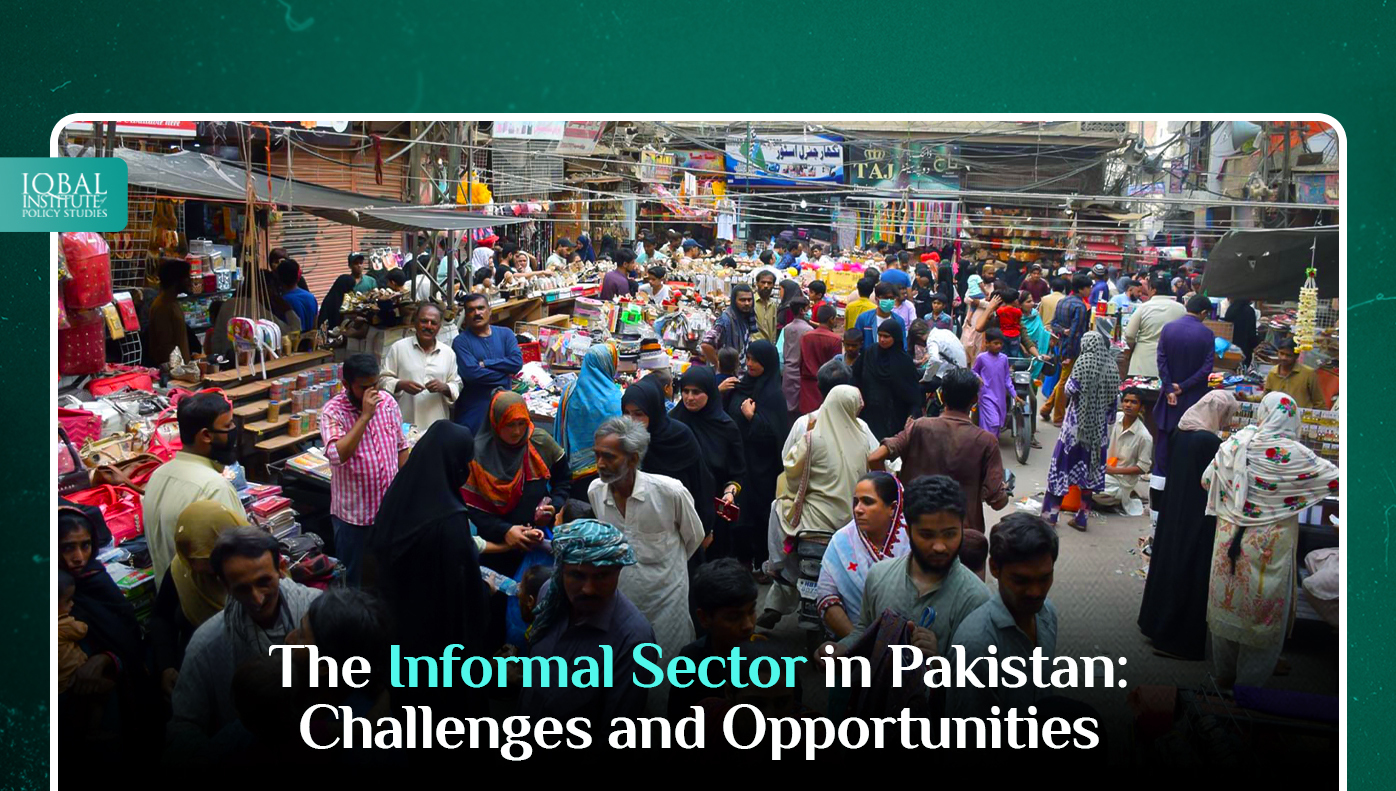The informal sector in Pakistan stands as a pivotal yet often overlooked component of the country’s economy. Its significance transcends mere statistics, extending into the everyday lives of millions of Pakistanis who are part of this sector, engaged in various unregistered economic activities. This sector encompasses everything from street vendors and small-scale artisans to agricultural laborers and domestic workers. While the informal sector contributes significantly to economic growth and provides livelihoods for a substantial portion of the population, it faces numerous challenges. In this comprehensive blog, we will delve into the multifaceted nature of Pakistan’s informal sector, exploring the obstacles it confronts, the opportunities it presents, and the policy measures necessary to harness its potential for the country’s economic development and social welfare.
Understanding the Informal Sector
Understanding the informal sector is fundamental to comprehending its role and significance in the economy of Pakistan. The informal sector represents a vast and diverse array of economic activities and employment that operate outside the purview of formal regulation and government oversight. This sector includes unregistered businesses, self-employment, casual labor, and various types of unincorporated economic activities. It’s often characterized by the absence of legal protections, job security, and social security benefits, leaving workers vulnerable to exploitation. However, it is essential to recognize that the informal sector is not solely a repository of challenges; it is also a source of innovation, economic resilience, and a means of income generation for a significant portion of the population. By understanding the informal sector’s dynamics, one can appreciate the complexity of its contributions and the need for policies and strategies that address its unique characteristics and challenges while leveraging its immense potential for the country’s economic growth and development.
Challenges Faced by the Informal Sector in Pakistan
Lack of Legal Protection
One of the primary challenges facing the informal sector in Pakistan is the absence of legal protection. Workers in this sector often lack job security, social security benefits, and legal recourse in case of disputes. This makes them vulnerable to exploitation and unfair labor practices.
Limited Access to Financial Services
Informal sector businesses and workers struggle to access formal financial services, such as credit and insurance, which are critical for expanding their operations and mitigating risks. This limits their ability to invest and grow.
Low Productivity
Informal sector workers often lack access to the training and technology needed to enhance their productivity. This results in lower incomes and perpetuates the cycle of poverty.
Lack of Regulation
The informal sector is not subject to the same regulations as the formal sector, leading to issues like child labor, unsafe working conditions, and environmental degradation. These issues can have long-term social and economic consequences.
Opportunities for the Informal Sector
Economic Growth
The informal sector plays a significant role in Pakistan’s economy by providing jobs and contributing to economic growth. Acknowledging and supporting this sector can result in increased economic activity and higher GDP.
Poverty Reduction
Integrating the informal sector can help lift people out of poverty. By providing workers with legal protections, access to credit, and skills training, they can earn higher incomes and improve their quality of life.
Diversification of Economic Activity
The informal sector encompasses a wide range of economic activities, allowing for diversity in the economy. This diversification can make the country more resilient to economic shocks.
Social Inclusion
Many women, minorities, and marginalized communities find employment in the informal sector. Recognizing and supporting this sector can lead to greater social inclusion and equality.
Policies and Strategies
To harness the potential of the informal sector in Pakistan, several policy measures and strategies can be implemented:
Legal Reforms
The government should enact laws to protect the rights of informal sector workers, ensuring fair wages, working conditions, and job security.
Financial Inclusion
Efforts should be made to extend financial services to the informal sector, making it easier for businesses and individuals to access credit and insurance.
Skills Development
Providing training and education opportunities to informal sector workers can enhance their productivity and earning potential.
Registration and Taxation
Encouraging businesses in the informal sector to register and pay taxes can help broaden the tax base and generate government revenue for public services.
Social Safety Nets
Developing social safety nets can provide a safety cushion for informal sector workers, ensuring they have access to healthcare, education, and other essential services.
Conclusion
In conclusion, the informal sector in Pakistan is a complex yet integral part of the country’s economy. It faces a myriad of challenges, including legal vulnerability, limited access to financial services, low productivity, and inadequate regulation. However, it also offers a wealth of opportunities, from driving economic growth and reducing poverty to diversifying economic activity and promoting social inclusion. Recognizing and supporting the informal sector through legal reforms, financial inclusion, skills development, registration, and taxation, and the establishment of social safety nets can catalyze its potential and lead to a brighter, more inclusive economic future for Pakistan. As the government and stakeholders work together to address the issues facing this sector, it becomes increasingly evident that the informal economy is not an obstacle to development but a valuable asset that, when nurtured and integrated responsibly, can fuel the nation’s progress.
This article is written by Radma Nouman. Radma is a research analyst at the Iqbal Institute of Policy Studies (IIPS).



Leave a Reply